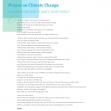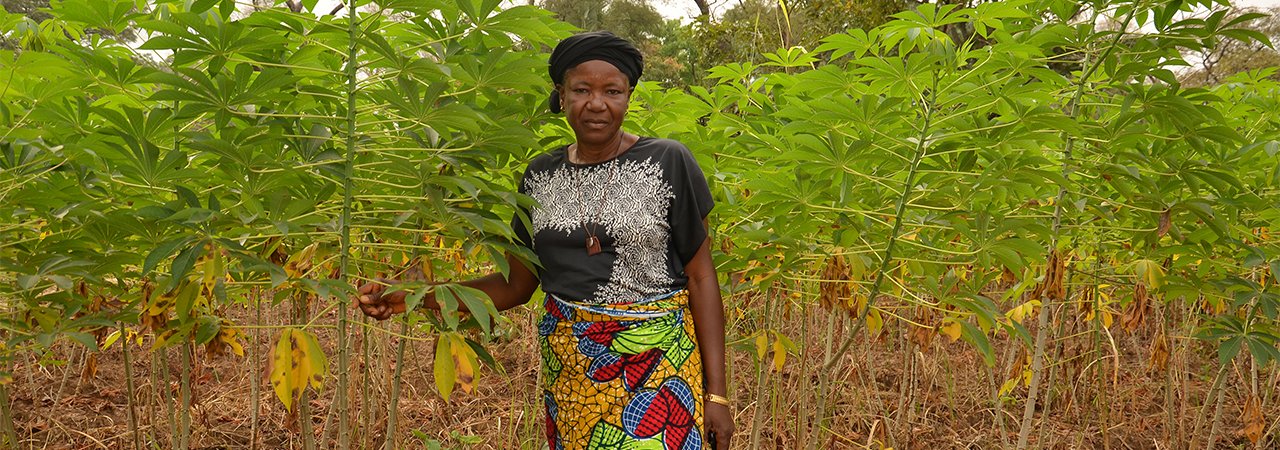

Sustainable Agriculture: Better Crops for Nigeria
Through the narrow openings that weave in and around the potatoes, beans, sesame, banana, corn, yams and cassava on her farm in central Nigeria, Mwuese Jato introduces her latest crop with particular pride: "TME 419!"
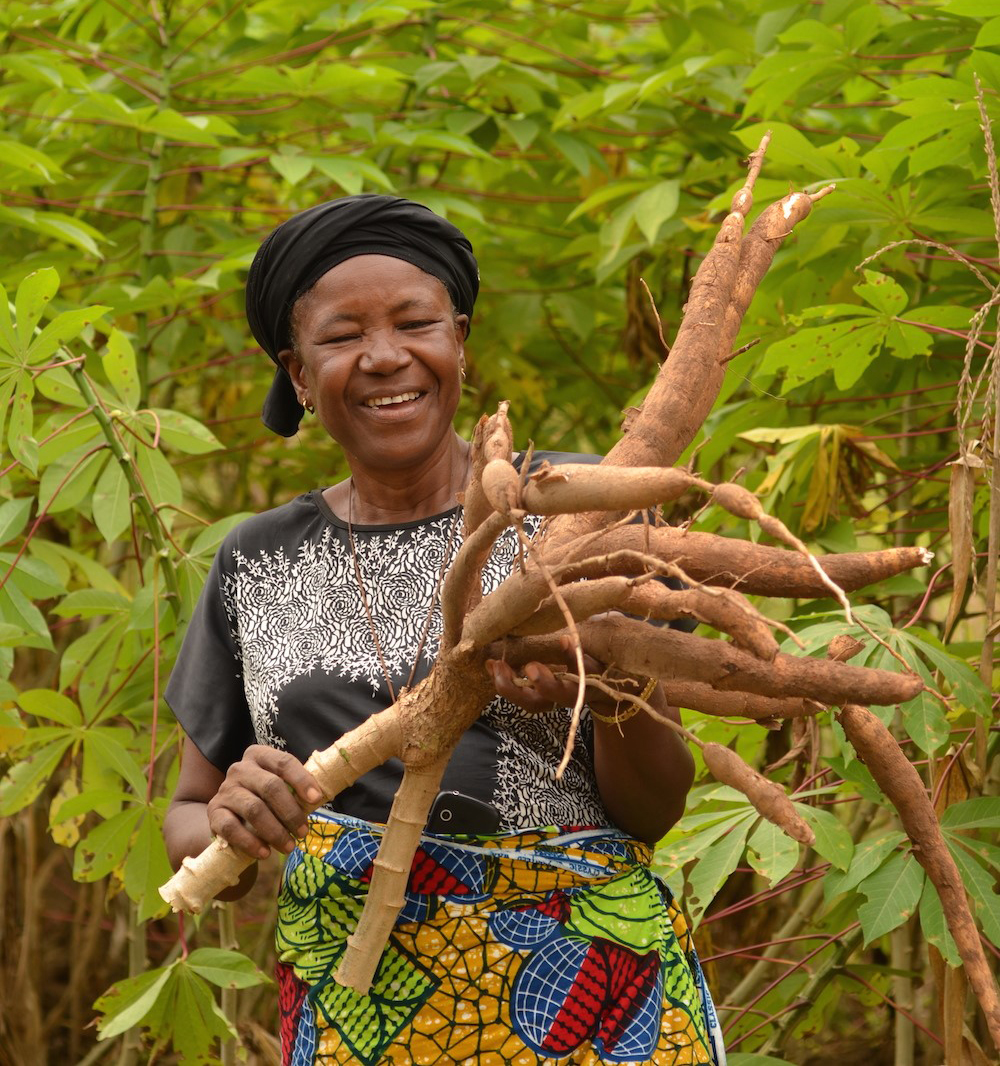
To the untrained eye, it looks like just another batch of cassava, a staple that millions of people depend on for food and income in Nigeria—and throughout Africa.
However, farmers who depend on the local cassava variety often struggle as low yields, fluctuating demand and marketing problems reduce their income.
"This is the new variety," explains Mwuese. "With TME 419, I'll produce more than three times as much cassava compared to the local variety," she says as she points toward the ground, where just below the surface the cassava root system grows. It's the part of the plant that is harvested and sold in local markets. But much of her income will come from the stems of TME 419 as well, which she will sell to farmers who want to plant the new variety in their fields.
Mwuese, a widow who heads a 14-member household, is one of more than 50 "seed entrepreneurs" participating in a 4-year Catholic Relief Services pilot project called Sustainable Cassava Seed Systems. With support from the Bill and Melinda Gates Foundation, CRS and our local partners are helping improve the cassava farmers' productivity and profitability. Seed entrepreneurs receive TME 419 cassava, along with practical advice how to grow, sell and track their earnings.
"Usually farmers give away their stems after a harvest, but people have seen how the new variety of cassava is better," Mwuese says. "Now people come to my farm, and they want to buy my stems."
Better crop variety, better harvests
Cassava is an important crop for two reasons: It is drought-resistant and it's available all year, so it can mitigate food shortages. Mwuese says she first heard about the new variety during a local demonstration sponsored by CRS. "I was convinced it would help me. When I harvest next year, I will do well," she says.
Approximately 4,000 farmers have participated in 20 farmer field days that promoted new varieties of cassava and taught best farming practices, including fertilizer and herbicide use.
A mass media campaign is also helping small-scale farmers understand the benefits and sources of improved cassava varieties.
Sustainable commercial system
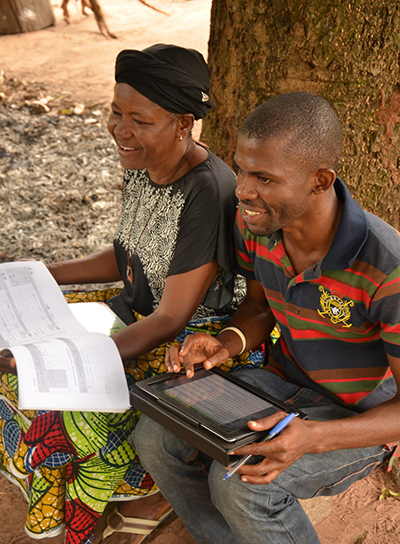 An app helps CRS collect and analyze information rapidly and efficiently from cassava farmers like Mwese Jato. The goal is to document progress and improve services. Photo by Michael Stulman/CRS
An app helps CRS collect and analyze information rapidly and efficiently from cassava farmers like Mwese Jato. The goal is to document progress and improve services. Photo by Michael Stulman/CRS

However, Mwuese and her neighbors need support to grow from subsistence farmers to agricultural entrepreneurs so they can sustain new farming practices.
A bad harvest can force farmers to sell their livestock, pull their children from school because they can't afford school fees, or take on debt that will burden their families for years.
CRS is building a network of dozens of local partners in Nigeria. This network is helping create a commercial and sustainable cassava seed system. Scientists provide advice based on sound evidence and extensive research. And with strong relationships in the farming communities, Catholic partners are trusted advisors. We leverage skills and knowledge so small-scale farmers can produce, market and sell cassava and its stems profitably. This helps farmers earn enough to sustain their families through a difficult growing season.
The network includes the Justice, Development and Peace Commission/Movement of the dioceses of Ibadan, Makurdi, Otukpo and Oyo. Other project partners include National Root Crops Research Institute, Agricultural Development Program in Benue and Oyo states, National Agricultural Seeds Council and International Institute of Tropical Agriculture.
Potential to scale up
Mwuese's experience demonstrates the practical benefits for farmers.
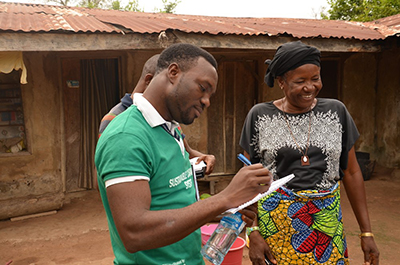
She has sold more than 2,800 cassava stems, earning around $750 during the last harvest. Mwuese has reinvested some of the proceeds in her farm, which will pay dividends during the next harvest. And she has extra money to support her family and community.
Mwuese is one of more than 1,000 farmers who have bought 60,000 cassava stems. As demand for the stems grows, the CRS model is designed to scale up and be adopted for nationwide use, giving entrepreneurs the potential to become an engine of economic growth in Nigeria.

